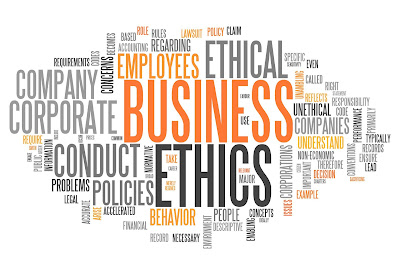Globalization and Business Ethics
 |
Introduction
In the 21st century the power and influence of business in society is greater than ever before. Nowadays the business leaders are the ones who are well known and followed by the people.
Business has the potential to provide a major contribution to our societies in terms of serving the general mass through their products and services, providing employment, paying taxes, and acting as a critical contributor to economic progress. But business malpractices have the potential to inflict serious damage on individuals, communities and the nation as a whole. Due to lack of awareness and education among businessmen and the multiplex nature of business ethics, ethical violations continue to occur across countries and sectors.
Issues
Different organizations have different approaches in addressing and managing ethical issues. For example a private corporation gives priority to financial integrity and employee/customer related issues but a public sector enterprise takes rule of law, corruption control and accountability into consideration.
Another issue that has had an impact on business ethics is globalization. The ethical impacts of globalization on different stakeholder groups are given below:
1. Shareholders: Globalization provides potential and opportunity for greater profitability, but also increases the risks and instability.
2. Employees: Corporations outsource their production to developing countries in order to reduce costs but in turn it raises possibility of exploitation of employees through poor working conditions, low payments,etc.
3. Consumers:Global products and services provide benefits to consumers across the world, but may also meet protests about cultural imperialism, westernization, health, safety and privacy issues. Globalization can bring cheaper prices to customers, but vulnerable consumers may also face violation of consumer rights by MNCs.
4.Suppliers and Local Competitors: Suppliers in developing countries face regulation from MNCs through supply chain management. Also the small and medium scale indigenous competitors are exposed to powerful global players.
5.Civil Society: Global business activities bring the company in direct interaction with locals thereby creating different sorts of cultural and social conflicts. Furthermore, many people urge their government to check the foreign
companies.
6.Government: Globalization weakens governments and increases the corporate responsibility for jobs, welfare, maintenance of ethical standards,etc. Globalization also confronts governments with corporations from regions with different cultural expectations about issues such as bribery, corruption,taxation, philanthropy,etc.



interesting facts.
ReplyDeleteThanks Ritu Raj
Delete